Business 2.0: Francis Ngai’s virtuous vision for Hong Kong’s first ‘smart city’
- Founder of Social Ventures Hong Kong grew up in Kwun Tong, where his goal is to redefine business success and help solve some of neighbourhood’s problems
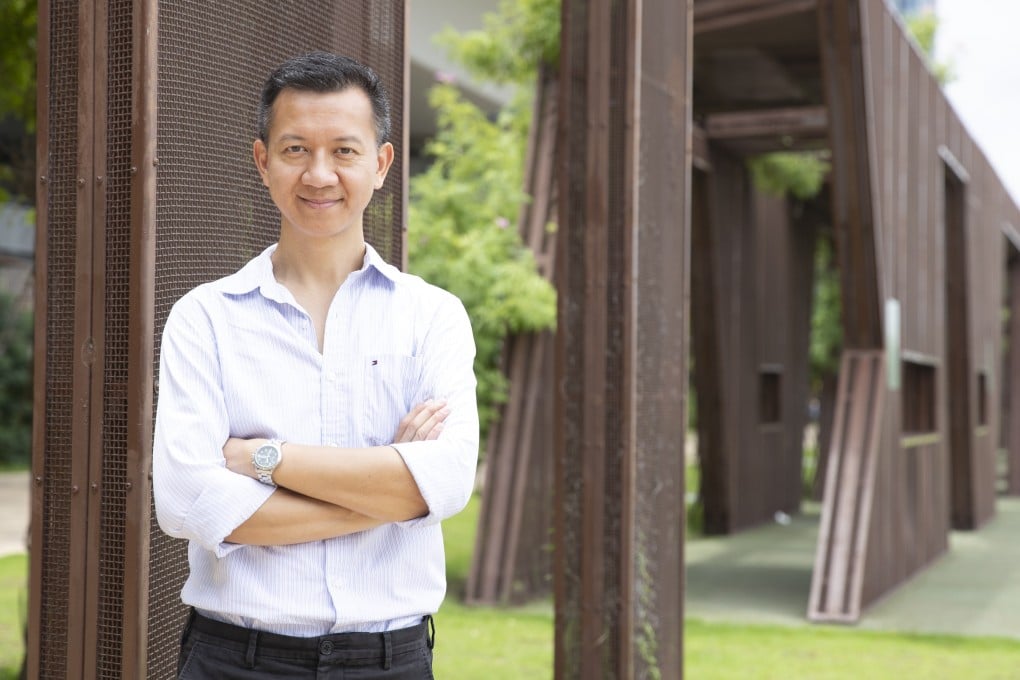

Kwun Tong may be positioned as the city’s Central Business District 2, as part of the government’s Energizing Kowloon East development programme, but the plan isn’t as straightforward as simply building Grade A office buildings and luxury malls.
As Kwun Tong transforms from an industrial district to Hong Kong’s first smart city, a wave of fresh energy has filled the area with potential to cultivate a new breed of business.
Francis Ngai Wah-sing, founder of social enterprise incubator Social Ventures Hong Kong, says it’s time to redefine what it means to be ‘successful’ by encouraging businesses to be driven not only by profits, but also by impact.
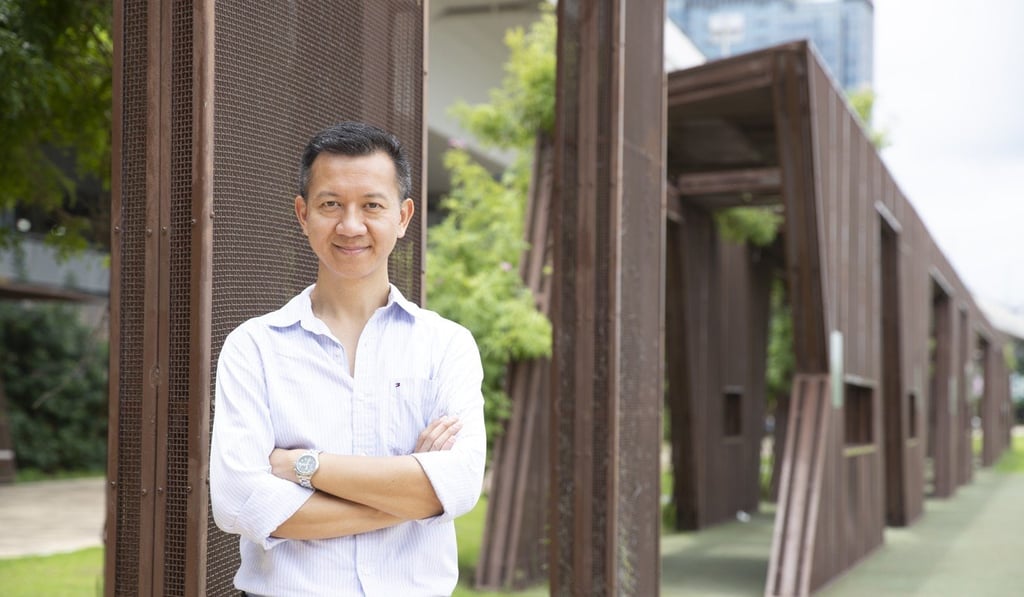
“Leaving social issues to nonprofits or the government isn’t working anymore,” says Ngai. “We need to find a hybrid, a middle ground. How can we generate the economic values but at the same time, take care of the city?”
A witness to change
Now 46 years old, Ngai is intimately familiar with Kwun Tong. As a child, Ngai lived in the tight-knit community, where neighbours supported each other.
“My mom was working [in Kwun Tong] and we lived in a residential area where there were many other families,” he recalls.
“I remember that we didn’t close doors when we left the apartment. I hung out with neighbours and they helped raise me. It was a vibrant society that came together and supported each other.”
After studying at City University of Hong Kong, Ngai moved away from Kwun Tong in 1996 to pursue a career in the telecommunications industry.
He had an esteemed career as the manager of a listed telecommunications company, but returned to his hometown a decade ago with a new purpose.
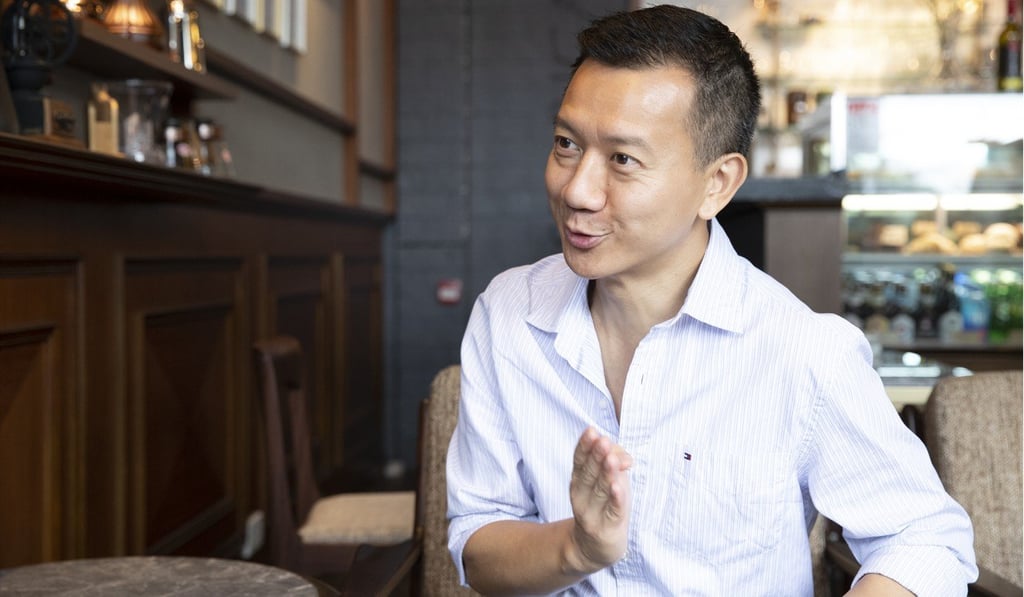
In 2007, Ngai left his prestigious job to found Social Ventures Hong Kong, an incubator for social enterprises.
“The [income disparity] in Hong Kong is huge. There are a lot of [subdivided units] in Kwun Tong area [in particular],” says Ngai.
I hung out with neighbours and they helped raise me. It was a vibrant society that came together and supported each other
“That’s [one of the reasons] we started our social enterprise, Social Ventures Hong Kong, in Kwun Tong. We wanted to see: Could we could solve some of the problems in our neighbourhood?”
Over the past decade, SVHK has started and supported more than 40 social ventures, including wheelchair-accessible taxi service Diamond Cab; affordable housing initiative Light Be, Light Hong; and plant-based movement Green Monday.
Such social enterprises, he says, could be a blueprint for Kwun Tong’s business development and honour the district’s supportive, tight-knit heritage.
“Now, we’ve seen the district switch from its industrial [roots] to more commercial [pursuits],” says Ngai.
“But Kwun Tong is not Central. We can redefine it. I think during the process, we are bringing in new business, new momentum, and we can also bring in new social innovations, too.”
Be wise, not smart
Building a smart city is not just about technology and green architecture – it’s also about developing better economic and lifestyle experiences for residents.
“For me, the term ‘wisdom city’ is more suitable than ‘smart city’. It hints at economic efficiency and capability, as well as [big-picture social] possibilities.”
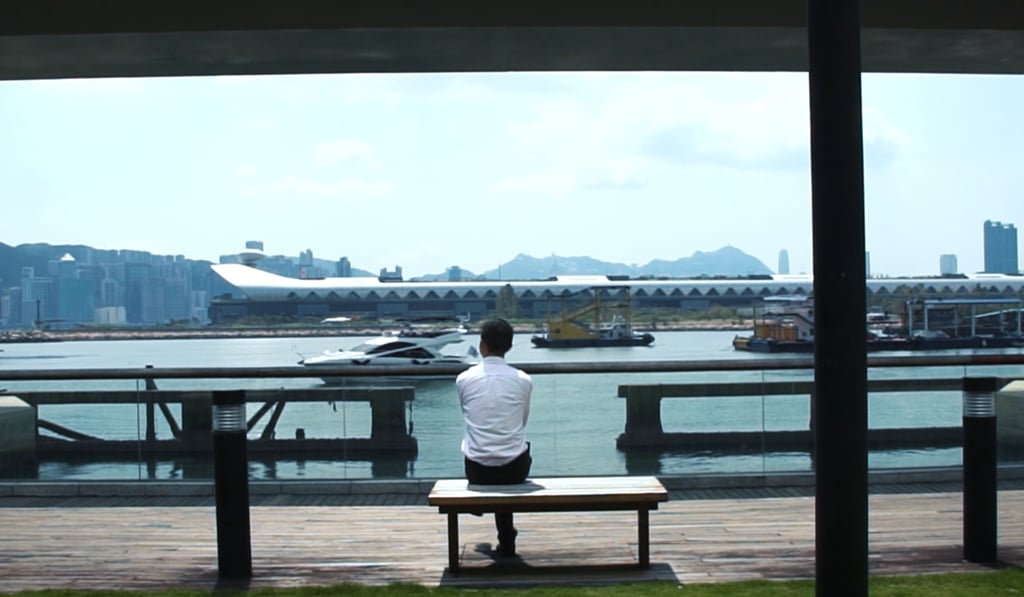
Ngai references the book Happiness: A Shared Global Vision, which was written by former Bhutanese Prime Minister Jigme Thinley and explores the concept of Gross National Happiness (GNH).
Embraced by countries such as Bhutan as an alternative to Gross Domestic Product, GNH measures success by the happiness and wellness of the community.
“Just doing business, creating GDP and [thinking about] the profit alone cannot bring happiness to our society or create a livable city for Hong Kong people,” says Ngai.
An essential aspect of elevating GNH is what he calls ‘software’, such as public spaces like the recently revitalised promenade.
The coast of Kwun Tong is very beautiful. I am imagining that spaces like the promenade are the way forward
Public spaces often lead to organic interactions and collaborations that add to the vibrancy of the area and ensure the district is much more than just a place to work.
“The coast of Kwun Tong is very beautiful,” says Ngai. “I am imagining that spaces like the promenade are the way forward. We can define a new way of living and working to enhance [residents’] happiness.”
But he says happiness can’t be achieved only through lifestyle factors. The city must also consider re-evaluating the markers for success.
Enter ‘Business 2.0’
As a pioneer in the social enterprise industry – for-profit businesses with social purposes – Ngai envisions a new kind way of doing business in Kwun Tong.
“If we consider Business 1.0, that would be [a system] built from greed. But Business 2.0 should be riding on good,” explains Ngai.
Kwun Tong is already somewhat of a hub for social enterprises, with several sprouting up in recent years.
One such business is Soapmum, a soap and skincare business that puts family first.
At the office, instead of shelves full of awards or trophies, the place is decorated with ‘family’ photos of employees on company trips and team-building activities.
Overtime has become the norm in most workplaces in Hong Kong. But a good and healthy business can enable its staff to enjoy their life
The company keeps its operation hours from 11:30am to 7:30pm from Monday to Saturday, both the back office and retail shops, in hopes enabling staff to make it home in time for dinner with their families and have Sunday off for family time.
Day to day, the company also aims to create a happy, healthy work environment for women by letting working mums bring kids to work and prohibiting overtime.
“[Our employees are] our family,” says Eva Kwok, a manager of Soapmum. “On [company trips], employees can bring their families, which will build even better relationships. [These relationships] can also help to run the business more smoothly.”
In Kwok’s personal life, the company’s ethos has provided a positive support system and a reminder that work-life balance is achievable.
“I’m a middle-aged woman with two kids in primary school. It’s not easy to find a job that allows me to have work-life balance,” says Kwok.
“Overtime has become the norm in most workplaces in Hong Kong. But a good and healthy business can enable its staff to enjoy their life.”
In Kwok’s personal life, the company’s ethos has provided a positive support system and a reminder that work-life balance is achievable.
“I’m a middle-aged woman with two kids in primary school. It’s not easy to find a job that allows me to have work-life balance,” says Kwok.
“Overtime has become the norm in most workplaces in Hong Kong. But a good and healthy business can enable its staff to enjoy their life.”
A family affair
Another example is Pater Mater, a social enterprise that’s all about caring for aging parents with intergenerational workshops like Thai boxing, VR party rooms, art jamming, and outdoor excursions.
Life is like a mirror. We have a chance to see things from a different perspective. I'm thankful for my parents raising me
Solomon Wong, the 28-year-old co-founder, left his job in real estate investment to launch the organisation.
“To me, family is the most important thing, and I had a chance to pursue a career that could solve a social problem and at the same time serve my own family,” says Wong.
“Life is like a mirror. We have a chance to see things from a different perspective. I'm thankful for my parents raising me. It's also a choice for us to ... to ‘grow up’ [成長] with our parents.”
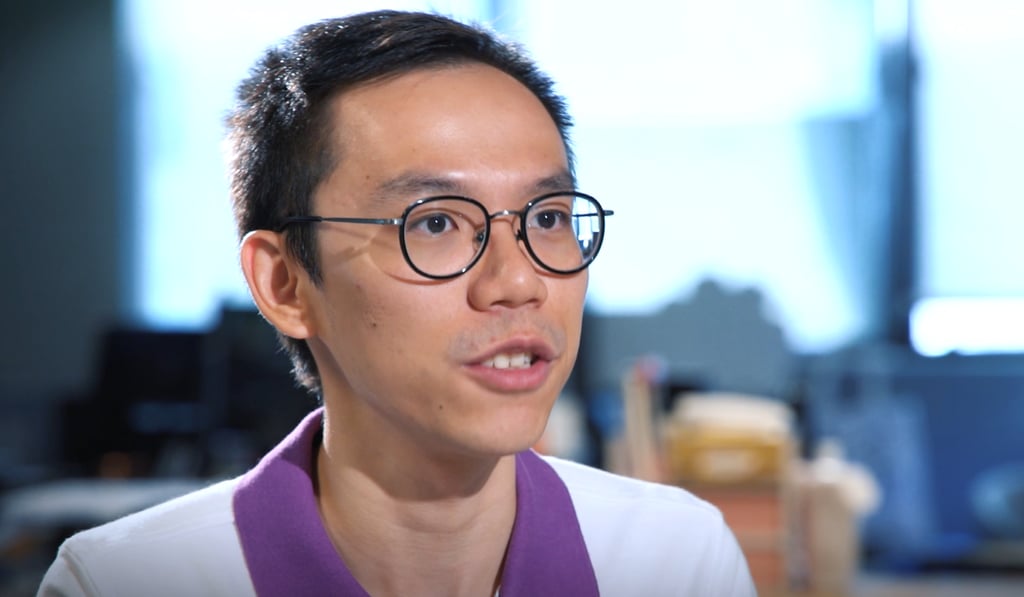
For Wong, Kwun Tong was an ideal fit for a nimble startup. His team works at The Wave, a co-working space, and is using the business acumen from his earlier career to drive the social venture.
“There are a lot of good things that we should treasure in the business mindset, such as striving for excellence and trying to achieve the most with the least resources,” says Wong.
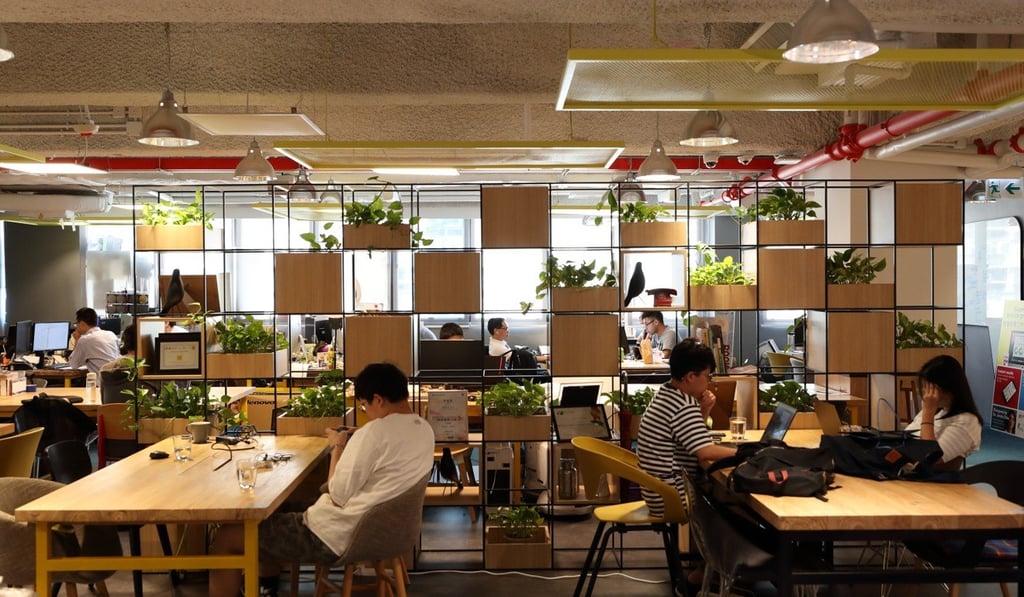
“I think this is a good mindset to have, but we should try to maximise a different return, not just in terms of monetary return but also in terms of impact.”
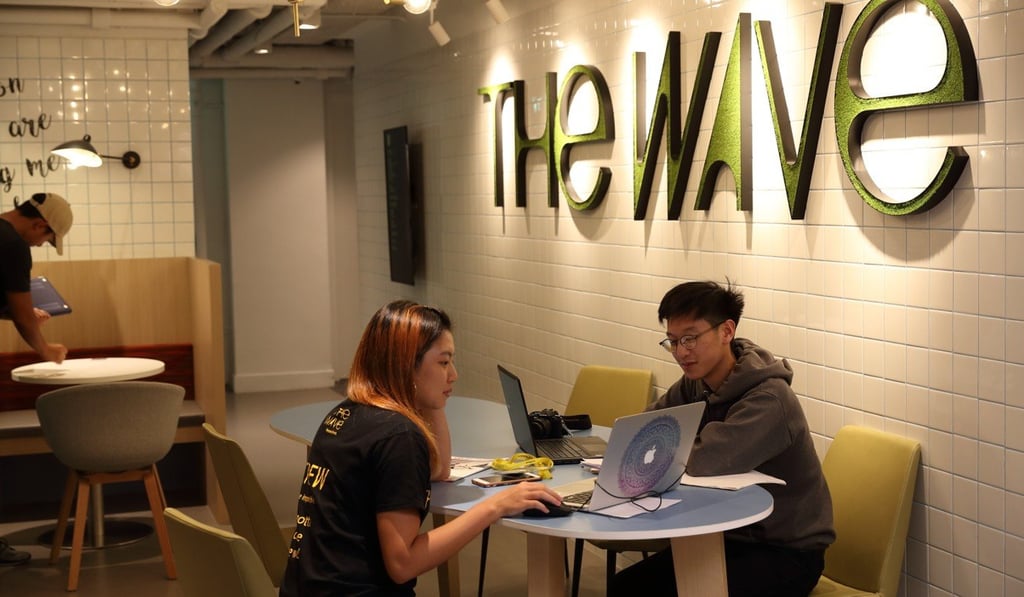
Ngai hopes that the concept of social enterprises becomes a staple in Kwun Tong and the city at large embraces another matrix, aside from profits, to measure success.
“Like Solomon, many more people find that they actually have a purpose,” says Ngai. “We need to redefine our values [for work and life] so that we can inspire more dreams. This is my dream.”